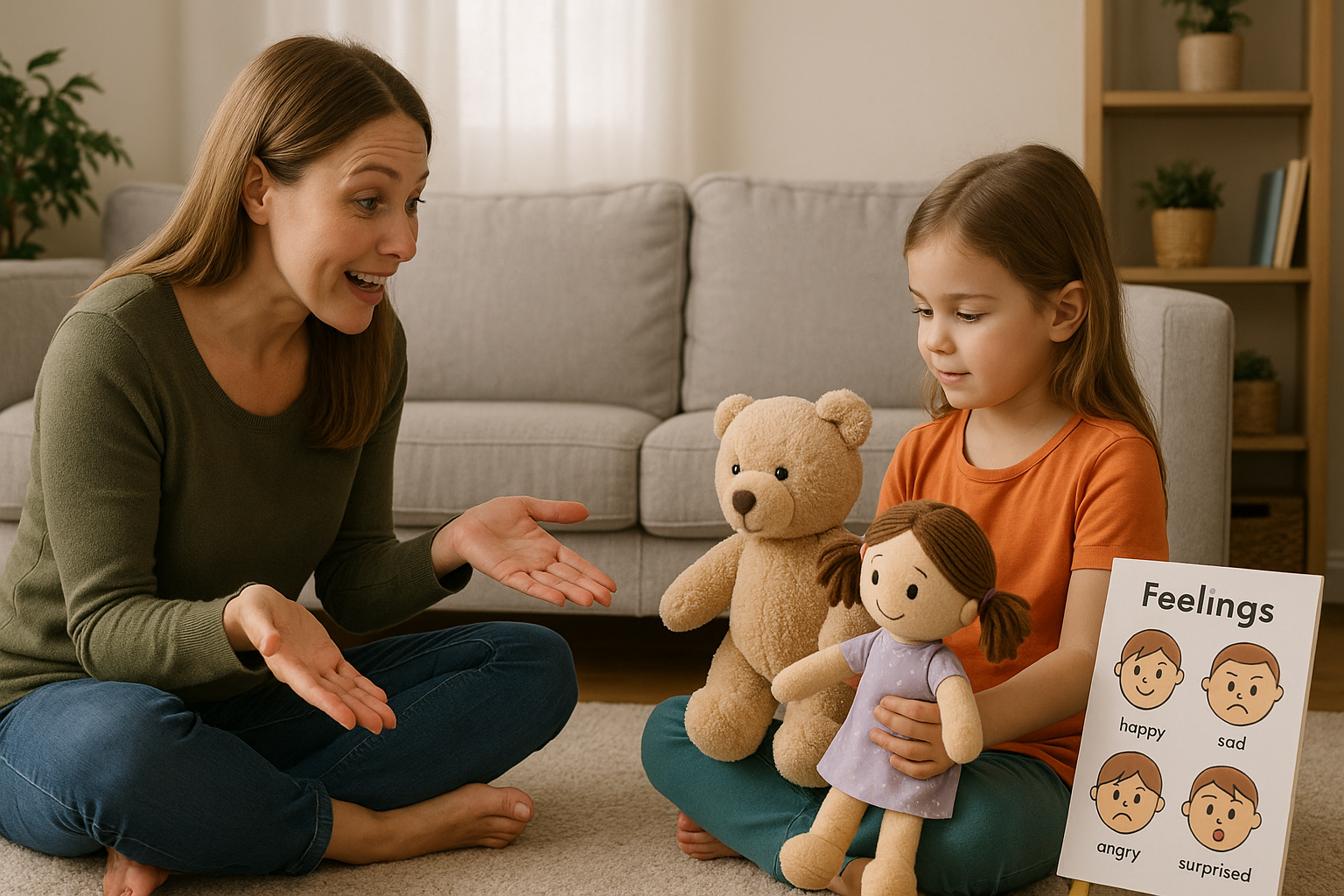Social skills are one of the most important areas of development in early childhood. They form the foundation for relationships, cooperation, emotional regulation, and future success in school and life. While children often learn these skills through play and interaction with others, the home environment plays a key role in shaping how they understand and navigate social situations.
In this article, we’ll explore practical ways to help your preschooler build strong, healthy social skills right from home.
Why Social Skills Matter
Preschoolers with strong social skills are more likely to:
- Build and maintain friendships
- Cooperate with others
- Share, take turns, and resolve conflicts
- Show empathy and kindness
- Adapt to group settings like school
Social development also influences self-confidence and emotional well-being.
1. Model Positive Social Behavior
Children learn more from what we do than from what we say. Be mindful of how you treat others—including your child.
Model:
- Saying “please,” “thank you,” and “sorry”
- Listening attentively
- Resolving disagreements calmly
- Apologizing when appropriate
When you demonstrate respect and kindness, your child is more likely to mirror those behaviors.
2. Use Pretend Play to Practice Scenarios
Pretend play is a natural and powerful way for children to experiment with social roles and emotions.
Ideas:
- Play “school,” “grocery store,” or “family dinner”
- Use dolls or puppets to act out sharing, helping, or saying hello
- Create stories where characters work together or face problems to solve
Prompt your child:
- “What should we do if someone is sad?”
- “How can we invite someone to play?”
3. Play Turn-Taking Games
Games that involve waiting, sharing, or following rules teach cooperation and patience.
Great options include:
- Board games like Candy Land or memory match
- Simple card games
- Ball toss or passing games
- Building together with blocks
Use encouraging phrases like:
- “It’s your turn now.”
- “Let’s wait for our friend to finish.”
- “Great job waiting!”
4. Read Books About Friendship and Emotions
Books are excellent tools for teaching empathy and social skills.
Look for stories that feature:
- Sharing
- Helping
- Understanding feelings
- Dealing with conflict
After reading, ask:
- “What did the character do well?”
- “How did they solve the problem?”
- “Have you ever felt that way?”
5. Create a Feelings Chart
Teach your child to identify and express emotions using a visual chart with pictures of different facial expressions and emotion words.
Each day, ask:
- “How are you feeling right now?”
- “What made you feel that way?”
Labeling feelings helps children understand their emotions—and empathize with others.
6. Role-Play Conflict Resolution
If your child struggles with arguments or frustration during play, walk through possible solutions.
Use real or imagined scenarios like:
- “What can we do if two friends want the same toy?”
- “How can we ask for a turn without yelling?”
Help them practice:
- Using calm words
- Listening to the other person
- Suggesting fair solutions
7. Practice Empathy Daily
Empathy can be nurtured by encouraging your child to notice and respond to others’ emotions.
Try saying:
- “How do you think your sister felt when that happened?”
- “Let’s help our friend feel better.”
- “Can you give them a hug or say something kind?”
Celebrate kind gestures to reinforce the value of caring for others.
8. Give Specific Praise for Social Efforts
Instead of general praise (“Good job”), focus on describing the positive social behavior you observed.
Examples:
- “I saw how you waited your turn—great teamwork!”
- “You helped clean up without being asked. That was very thoughtful.”
- “You said sorry when you bumped your friend. That was kind.”
This reinforces the behavior and helps your child understand what they did right.
9. Encourage Independence with Responsibility
Social skills often grow through responsibility. Give your child small tasks that involve cooperation or helping others.
Ideas:
- Help set the table for family meals
- Deliver a toy to a sibling
- Water plants or feed a pet together
These acts promote teamwork, respect, and routine participation in shared responsibilities.
10. Be Patient and Consistent
Preschoolers are still learning to manage impulses, express emotions, and understand perspective. Expect setbacks and use them as teachable moments.
When things go wrong:
- Stay calm
- Acknowledge feelings
- Offer guidance on what to do differently next time
Consistency and support are key to helping children grow socially and emotionally.
Social Skills Are Built One Moment at a Time
Helping your child build healthy social skills isn’t about lectures or rigid rules—it’s about creating a supportive environment where kindness, cooperation, and communication are part of daily life.
Through modeling, storytelling, practice, and encouragement, you can nurture a child who is not only socially confident, but also thoughtful, respectful, and emotionally aware.
